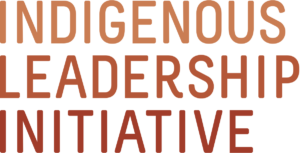5 Breakthroughs in Indigenous-led Conservation & Stewardship in 2023
December 20, 2023
The Indigenous leadership that generated international attention at last December’s COP15 Biodiversity Summit in Montreal continued to shine through 2023. The year brought challenges, including record-breaking wildfires that devastated communities across the country and sent smoke billowing for thousands of kilometres. But from the community level to the national stage, Indigenous Nations offered solutions for caring for lands and waters. Canadians welcomed these contributions: 75% of Canadians support the Guardians programs, for instance, according to a recent poll.
Here are some highlights ILI is proud to be a part of in 2023.
26 Partners Agree to Support Indigenous-led Conservation across the NWT
On October 11, Indigenous Governments, the Government of Canada, the Government of the Northwest Territories, and private funders gathered in Yellowknife to announce a framework agreement to fund the protection of lands, support thriving cultures, and foster economic diversification across the Northwest Territories. This groundbreaking agreement, known as the NWT Project Finance for Permanence (PFP), is centered on Indigenous leadership.
A recent poll found that 88% of NWT residents support the NWT PFP, and 84% agree that focusing on land protection will help economic growth and jobs in the NWT.
In the coming months, partners will confirm the scale of the resource commitments required to deliver the intended results for communities, lands, and the region. “Investments that match the scale of our shared vision will enable transformative benefits for years to come,” said Grand Chief Jackson Lafferty, Tłı̨chǫ Government. The ILI is honoured to serve as conveners for the NWT PFP.
Over 160 First Nations Guardians Programs Are Now Caring for Lands & Waters
On September 29, Environment and Climate Change Canada Minister Steven Guilbeault announced federal funding for 41 new Guardians programs and 49 existing programs. As a result, there are now more than 160 First Nations Guardians programs. That means over one quarter of First Nations in Canada have a Guardians program.
The minister also announced that the next round of federal funding would be managed by the First Nations National Guardians Network (NGN)—the first Indigenous-led national stewardship network in the world. With this shift, the NGN is helping establish a new kind of partnership between First Nations and Canada—one where care for lands and waters is guided by Indigenous decision making. Shaunna Morgan Siegers, Interim Executive Director of the NGN, said this will help create “a stable, sustainable future for Guardians.” ILI is proud to have helped launch the NGN and will continue to partner with the network to support Guardians.
ILI Assumes Leadership of One of Largest Conservation Campaigns
In a major milestone in the conservation movement, ILI assumed leadership of the International Boreal Conservation Campaign (IBCC). This marks one of the first times a longstanding, successful environmental campaign has stepped back and relinquished control of its assets to support Indigenous leadership. ILI has absorbed IBCC’s staff, structures, budget, and fundraising relationships.
ILI and IBCC celebrated this transition on June 13 with a ceremony and community feast in Mashteuiatsh, Quebec. ILI Executive Director Valérie Courtois said, “IBCC is one of the first major environmental initiatives to recognize that decision-making on Indigenous lands must be led by Indigenous Nations. With this transition, the campaign is helping usher in a new era—one that ensures Indigenous Peoples are recognized and supported as the appropriate and natural leaders of conservation of their own homelands.”
120 People Celebrate Guardians in an Innu Shaputuan on Parliament Hill
Where there are Guardians, there are benefits–for lands and waters, for health and wellbeing, for communities and regional economies, and for all of us. On November 1, ILI and the Honourable Michèle Audette, Senator, arranged to build a shaputuan—a hundred-foot-long Innu structure—on Parliament Hill to celebrate these benefits.
More than two dozen Parliamentarians from the House of Commons and the Senate participated in the celebration, along with First Nations leaders and about 40 First Nations Guardians. Ministers Guilbeault, Anandasangaree and Vandal gave brief remarks on the value of Guardians programs. ILI Senior Leader Frank Brown said Indigenous Nations are ready to lead: “We're not coming for a handout. We're coming with a gift. Support us to step up in these areas to assume the responsibility that we always had.”
Over 350 Attend the Biggest National Guardians Gathering
More than 350 Guardians, leaders, partners, and allies came together in Ottawa from May 9 – 11 for knowledge exchanges, training sessions, and celebrations. Hosted by ILI and the First Nations National Guardians Network, the event began and ended in ceremony, and in between, Guardians learned from other Guardians. Environment and Climate Change Minister Steven Guilbeault spoke to the crowd, and ILI Senior Leaders blanketed Governor General Mary Simon in recognition of her advocacy and support of Indigenous-led stewardship throughout her career. Most of all, the Gathering—the largest since they began in 2016—recognized the ways Guardianship sustains people and the land.
As Jimmy Nuna of the Innu Nation said, “What does it mean to be a Guardian? It gives me purpose in my community—to teach our future generations to come out on the land with us, give them a sense of purpose, give them a sense of identity.”
And One More: National Poll Shows Resounding Public Support for Guardians
A national poll released in November found that the vast majority of Canadians view Guardians’ work as a cost-effective solution for climate change, reconciliation, and conservation. The poll, conducted by Abacus Data for ILI, showed that Canadians express broad, cross partisan support for Guardians: 75% favour Guardians programs and 73% back federal funding for Guardians programs to fulfill their functions.
David Coletto, CEO of Abacus Data, says: “Even in this affordability crisis…Canadians are on board with putting federal funding towards these initiatives, seeing a prudent way to spend tax dollars on the challenges we collectively face.”







